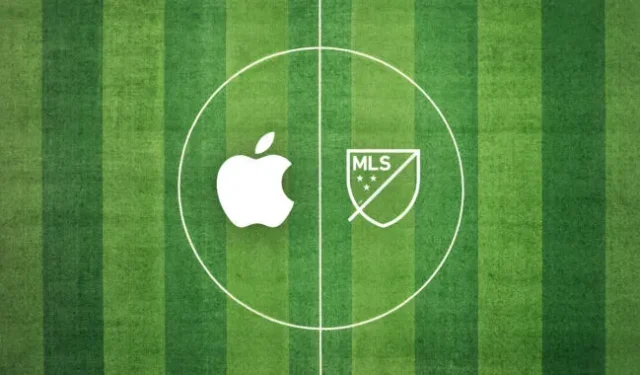Apple will broadcast all Major League Soccer matches for 10 years

Apple and Major League Soccer (MLS) today announced that the Apple TV app will offer streaming video of every MLS match for the next 10 years.
Apple claims that viewers “worldwide”can “watch all of MLS, the League Cup and select MLS NEXT Pro and MLS NEXT matches in one place – without any local broadcast outages or the need for a traditional pay-TV package.”
A blog post on the Apple Newsroom site appears to suggest that while the service will be exclusive to the Apple TV app, it will be billed separately from Apple TV+’s universal streaming service. However, a limited number of MLS and League Cup matches will be available for free to Apple TV+ subscribers.
The post also notes that purchasers of ticket packages for the entire MLS season will receive free access to the entire MLS streaming service.
When you tune into the broadcasts, you will have the choice between English and Spanish commentators for all matches, and there will also be a French option for all matches involving Canadian teams.
Neither Apple nor MLS have announced a more specific launch date for the service, and pricing is still a mystery.
The Apple TV app is apparently available on Apple devices such as Mac, iPhone, iPad, and Apple TV. But it has also made its way to other hardware, including the PlayStation, Xbox, Chromecast, Amazon Fire TV, Roku, and several major smart TV brands. This isn’t Apple’s first foray into sports broadcasting. This was part of the Apple TV strategy for a while, but earlier this year, the company expanded its plans with regular Major League Baseball (MLB) streams on Friday nights.
Why this is unnerving ESPN and regional sports networks
Major League Soccer is close to a rare popular sports district occupied by the NFL, MLB, NBA, NHL, and college football and basketball. But even with the relative unpopularity of MLS compared to other leagues, this announcement from Apple is a very big deal.
Live sports is by far the main reason why millions of people have not yet cut the cord by severing their ties with cable companies and satellite TV providers. This is simply because the easiest way to follow a team from your hometown — outside of the NFL, whose games are all free-to-play in local markets — is to subscribe to a local cable company or satellite provider. These are the people who own the regional sports network that has the right to broadcast your local teams. For the Chicagoan who wants to watch every game between the Bulls, Blackhawks, Cubs, White Sox, Fire and Red Stars, the only way to keep track of what’s going on is Marquee Sports Network and NBC Sports Chicago, both of which require cable or satellite television. TV subscription.
For the first time, an MLS fan can watch all of their favorite team’s matches without a cable TV subscription. This is huge because this is the first time for any major American sports league. Sure, MLB and NBA offer their own streaming services, but there are significant limitations. You cannot watch your local team in NBA League Pass; for this you need a cable TV subscription. You cannot watch national broadcasts on NBA League Pass; you need a cable subscription for games that don’t air. And so on.
Apple TV is changing that model with today’s announcement. If you’re a die-hard Columbus fan and want to watch your favorite team anywhere, anytime, you have a new non-Comcast or DirecTV option. And if you’ve been hanging on to the cable just to watch Crew, it’ll be a lot cheaper.
Apple and MLS have done something remarkable here. With the NFL currently in talks with several streaming services for its off-market Sunday ticketing service and the NCAA Big Ten Conference in the process of selling its next package of media rights, the next big deal could end up with a total cable shutdown. According to John Uranda of Sports Business Journal, Apple is paying somewhere around $2.5 billion over the 10 years of this agreement. It’s small change for Apple… and Amazon… and Google.
Today’s announcement marks the beginning of the end of the traditional way sports are broadcast in the US. When live, off-market sports are no longer the only ones found only on cable television, cord-cutting will accelerate, much to the dismay of regional sports networks and even ESPN.
Leave a Reply